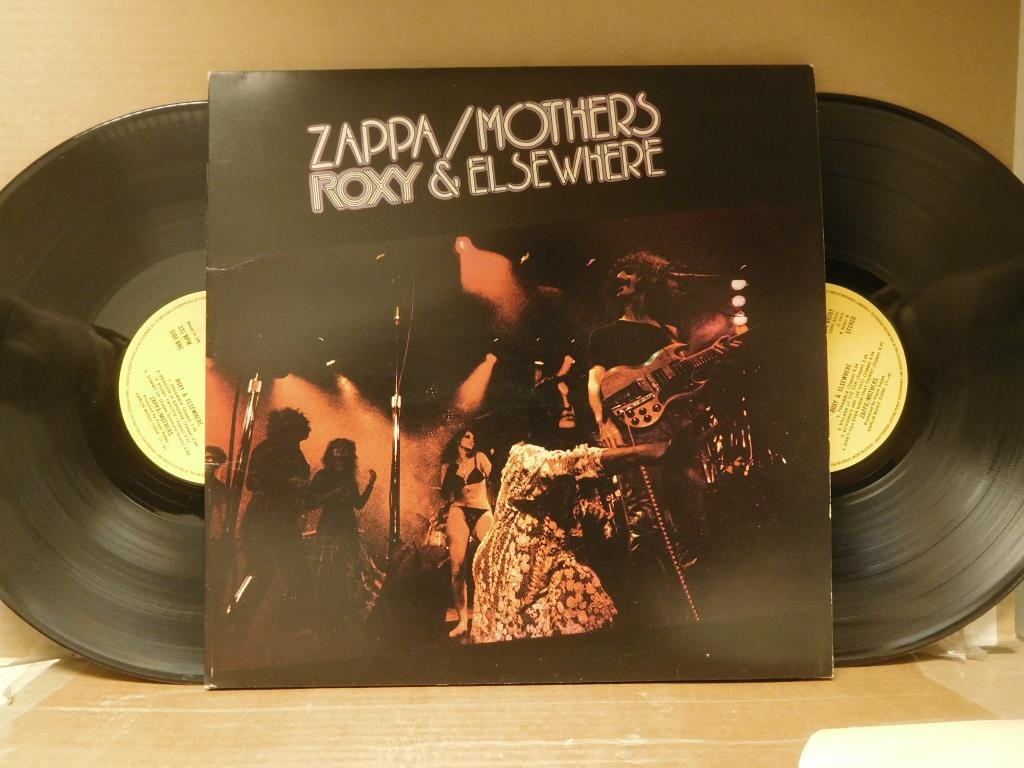

These reprehensibles are apparently tiny, their limited (pygmy) universes reduced to light and dark, up and down. " City Of Tiny Lites" (compare the title to " Pygmy Twylyte") on Sheik Yerbouti also mentions downers. Winchell’s Donuts comes up again in " The Blue Light" on Tinseltown Rebellion, adding an alcoholic to the cast of substance dependents. His/her/their conditions transform the environment, not them they see particular types of "Midnite" and "Moonlight." Frank was always more poetic than he gave himself credit for. Of course, there might be more than one druggie in the lyrics. This is apparently one hell of a binge the guy’s also "hurtin’ for sleep in the Quaalude Moonlight," which refers to downers, while the "crystal eye" suggests smoked cocaine (or perhaps describes the character’s glazed vision, to go along with the glazed donuts). The Winchell’s could also be unwittingly servicing narcotics junkies looking for sugar fixes. The line about "crankin’ an’ a-coke’n" updates the character’s drug repertoire, while the remark about trying to quell the munchies ("in the Winchell’s do-nut Midnite") and the mention of a stash-ready "Greyhound locker" - again foreshadowing the gym-sock part - return to pot. The "croakin’" denotes both the guy’s voice (or the sound he makes when trying to expel a hocker) and death by drugs. A diploma, stuffed with a gym sock to simulate the stench of marijuana, will be smoked in the next song. The "hocker" mentioned in " Pygmy Twylyte" is a ball of phlegm in the throat, probably caused by chronic pot-smoking in this case the lyrics are based on another foolish character in Frank’s real-life cast, the druggie. This explains some of the lyrics in " Penguin In Bondage," as well as the inclusion of the Johnny Cash tune " Ring Of Fire" on The Best Band You Never Heard In Your Life.

The subject of penguins first came up during the 1967 Garrick Theatre shows, and then onstage with the Flo & Eddie Mothers: A stuffed penguin would be shot through a hoop of fire made out of coat hangers wrapped with tissues. The first word of the next song title is, after all, "Pygmy." "Knirps" is also German slang for "short person." Frank might have been aware of this tie-in to his munchkin ethic. Knirps, a German umbrella company, is mentioned, hinting that a closed umbrella might be used as a sexual implement (and foreshadowing, in opened/protective form, the giant dog’s ejaculation in " Cheepnis" later on Roxy). The reference to a penguin (a white groupie bound in black straps, considering the bondage-related introduction) follows up on the frozen wasteland of the suite about Nanook on Apostrophe ('). The “Brian” Frank asks to turn up the onstage floor monitor volume is Brian Desper, his 1973-'74 sound man. Some overdubs, mainly to double Napoleon Murphy Brock’s vocals, were added that summer. The "gymnasium extravaganza" at Edinboro State College in Pennsylvania on provided some additional material (" Son Of Orange County" and “ More Trouble Every Day”), as did the second of two concerts performed at the Auditorium Theater in Chicago, Illinois on Mothers’ Day (May 11): a section of " Penguin In Bondage". Most of the album’s material comes from The Mothers’ six-night residency at the Roxy in Hollywood, Dec 7-12, 1973. Liner Photography by Sherwin Tilton, Coy Featherston & Steve Magedoff. Overdubs at Bolic Studios & Paramount Studios, Hollywood. Be-Bop Tango (Of The Old Jazzmen's Church) (16:41).More Trouble Every Day (6:01) - related to Trouble Every Day.


 0 kommentar(er)
0 kommentar(er)
